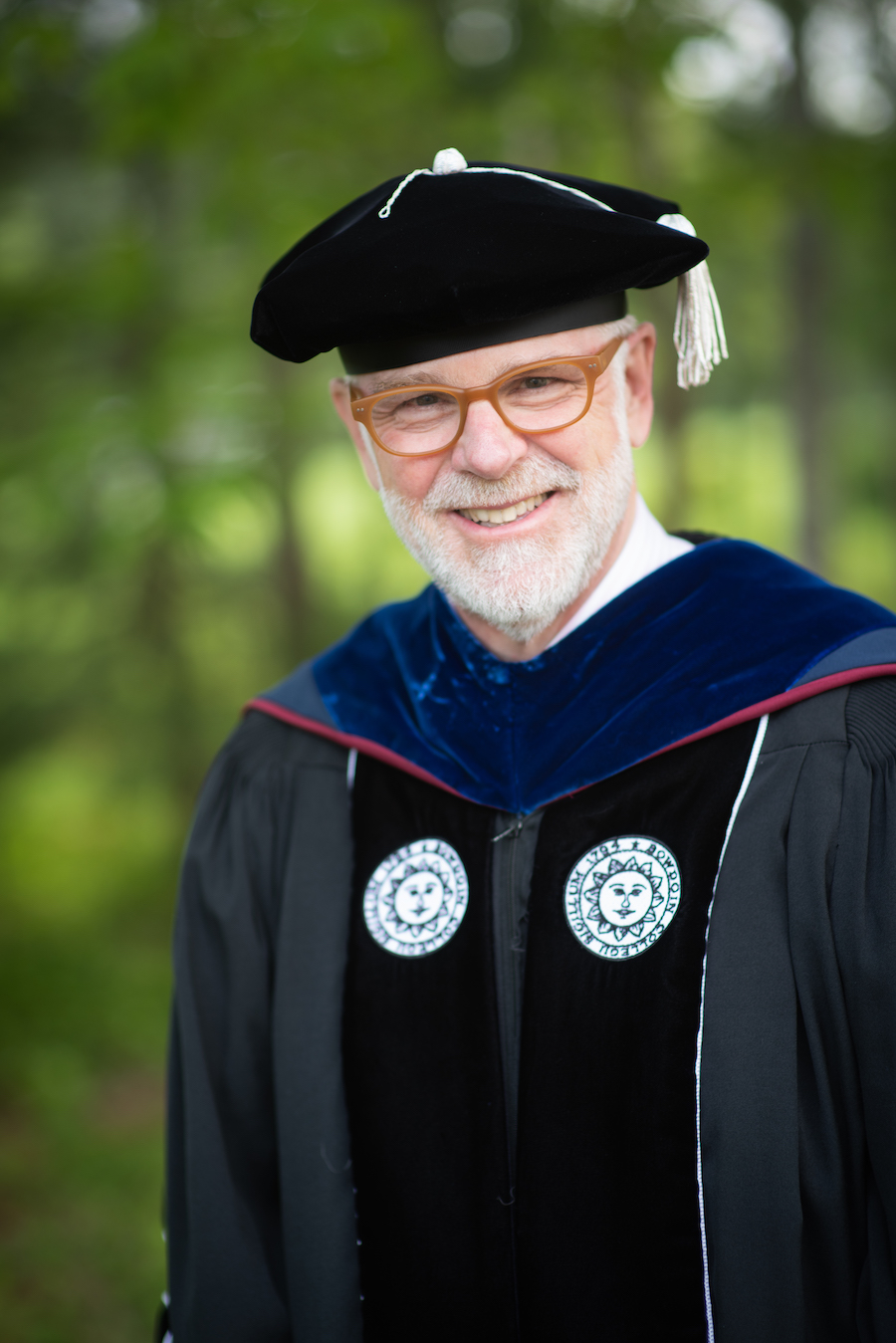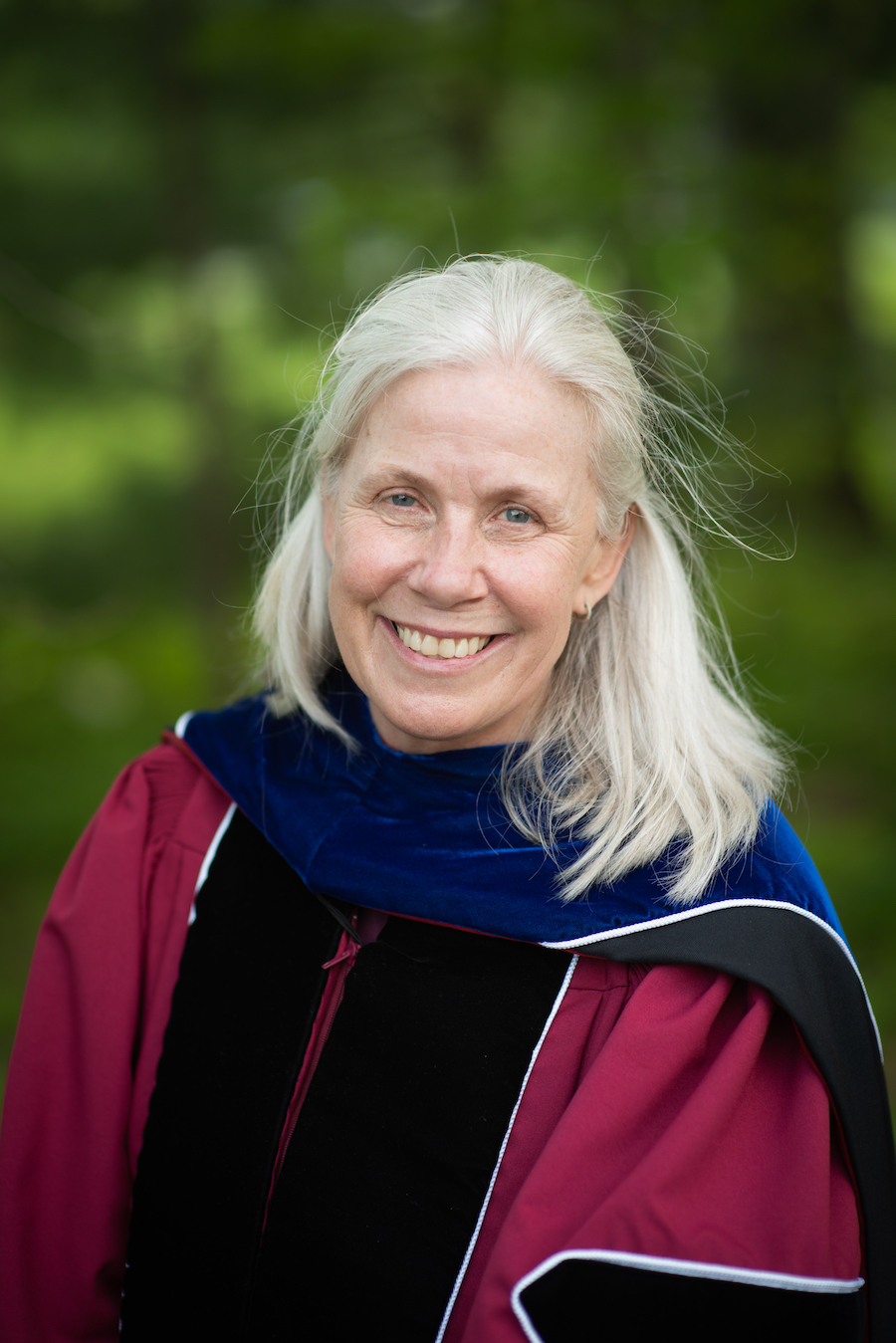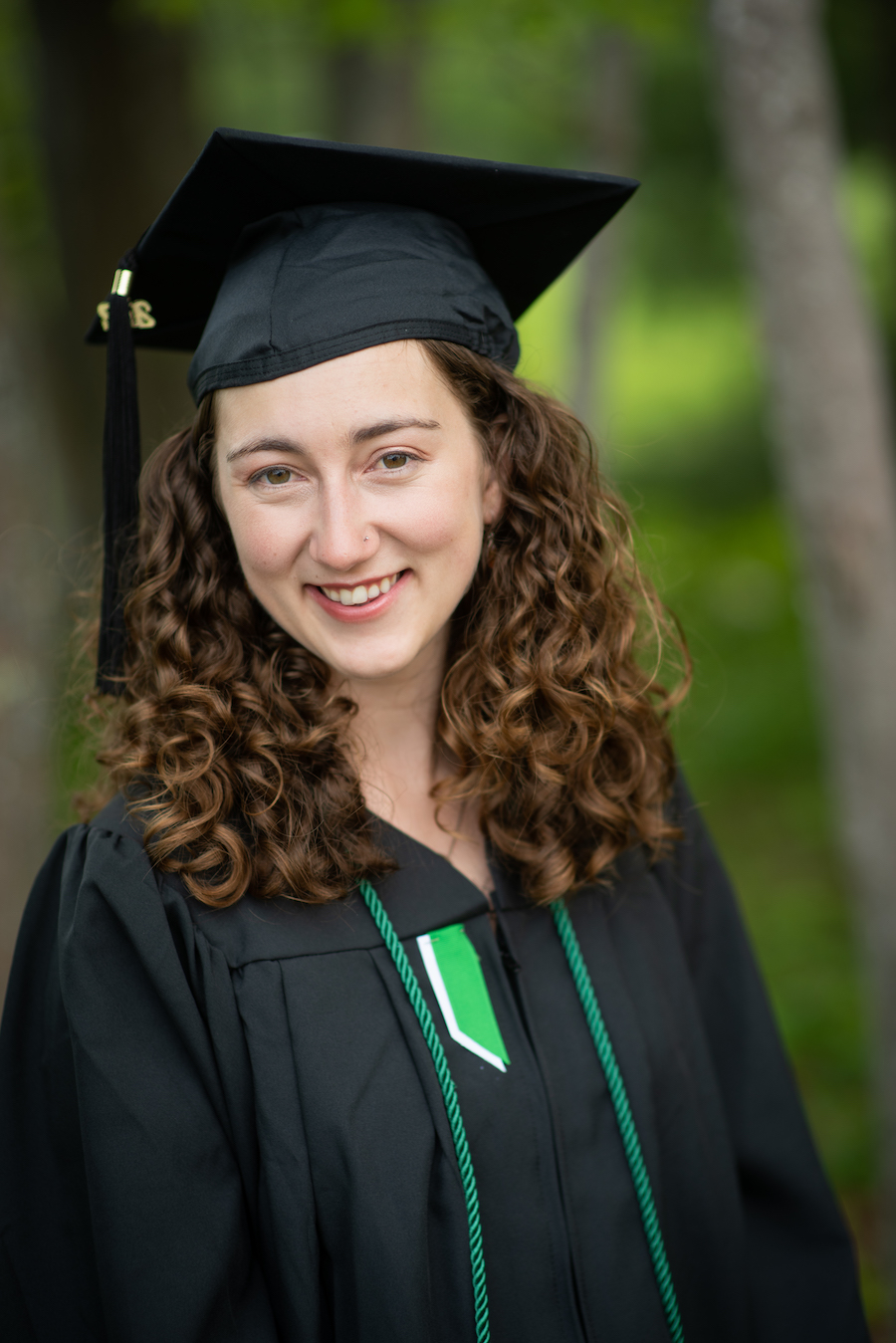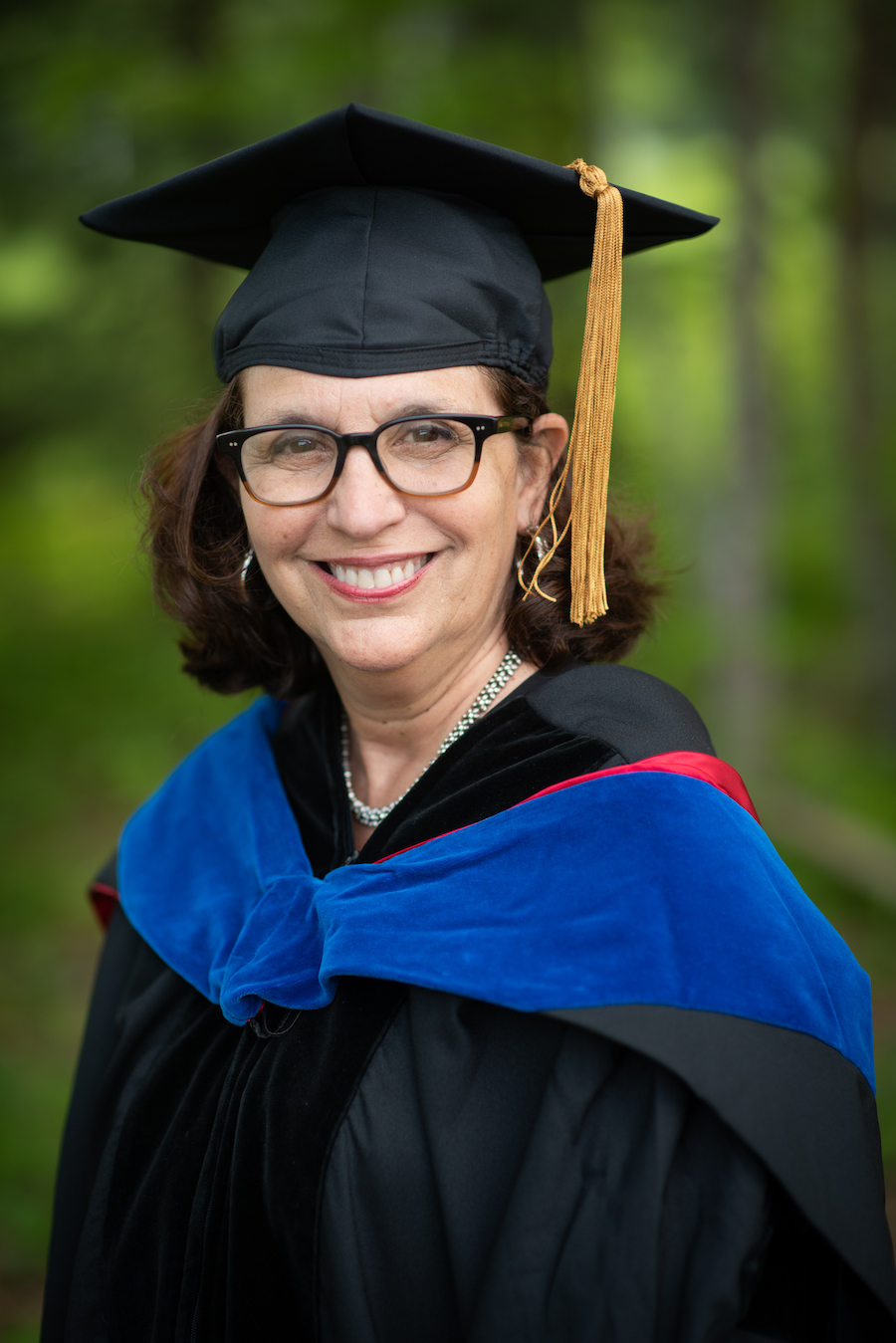Bowdoin Marks Close of Academic Year with Baccalaureate Ceremony
By Rebecca Goldfine
President Clayton Rose, who presided over the Baccalaureate ceremony, opened his remarks by acknowledging the historic challenges of the pandemic years. He gave credit to the senior class for succeeding despite them.
"As hard as it has been, you have more than risen to the challenge. You have taken care of one another, you have taken care of yourselves, you've adapted and adjusted, and you have crafted your Bowdoin education and experience," he said.
Reinforcing the notion of perseverance, Rose brought up the Stockdale Paradox, named for Admiral James Stockdale, who was imprisoned for more than seven years in Viet Nam. The paradox comes from a statement Stockdale made in response to a question about how he survived for so long: "You must never confuse faith that you will prevail in the end—which you can never afford to lose—with the discipline to confront the most brutal facts of your current reality, whatever they might be," he answered.
Indeed, Rose noted that not only do those "without a keen grasp of the realities of the big problems" risk losing hope, they also risk applying the wrong solution.
After noting many of the "heavy" issues confronting us today—including war, domestic and political division, the reemergence of nativism, murder and violence targeting those of marginalized identities, and horrific gun violence, Rose focused on two dilemmas: how to achieve racial equality and how to ameliorate climate change.
"The path to racial equity is work that requires an understanding of the structures that are in place throughout our society that block equity of opportunity and belonging," he said. "The data are clear about the reality of these structures across the justice system, heath care, education, economy—every aspect of our society. To attack this problem requires dismantling these structures—no easy feat and one that takes concerted effort over a long period of time."
Reducing carbon from our energy sources will require "decades of transition," Rose continued. "Even if the alternatives currently existed at the scale required with the infrastructure needed, which is not yet the case, it would take years to make this change without profound economic consequences, in particular for those most disadvantaged. And this is further complicated by the necessity of coordinated action on a global basis, which runs into the challenges of sovereign self-interest."
But both these incredibly complex problems can be solved within the students' lifetimes—by those most clear-eyed, he said.
"Change can happen, and it does," Rose continued. "And it is driven by those who understand the realities that I described. Let the reality of these challenges steel you and motivate you for what’s ahead."

Readings from Bowdoin’s Past
Dean for Student Affairs Janet Lohmann delivered “Readings from Bowdoin’s Past,” a Baccalaureate tradition in which the dean evokes an aspect of the College's history to reflect on today.
She spoke about Larry Pinette, who retired as director of Bowdoin's dining services in 1989 after thirty years of service to the College. (In this time, he came up with the famously tasty Bowdoin Log.) Pinette was the son of immigrant parents from Canada, and he grew up on the so-called wrong side of the tracks in Brunswick.
In the nineteenth and twentieth centuries, Brunwick was divided by the "hillside" Anglo-Saxon neighborhoods around the College, and the "millside," where predominantly French-Canadian families lived near the Cabot textile mill (now Fort Andross).
Pinette crossed the tracks in 1955 when he became a fraternity house chef. His arrival marked the beginning in a shift in the way Bowdoin thought about food—from something quotidian to something epicurean.
"To remember Larry Pinette is to pay homage to the formal meals and lobster bakes, the fresh local vegetables and fruit at every meal, and the parsley garnish on every plate," Lohmann said.
Bowdoin still prizes fresh food sourced locally. About thirty-five percent of the food served by Bowdoin Dining is locally grown, raised, or processed, including vegetables from the Bowdoin Organic Garden and sap collected from campus maple trees.
Pinette also cared about the setting of meals, and their presentation. When beautiful platters were placed down on tables, always garnished, the students behaved better, like "gentlemen," he said.
And he understood the importance of food in cultivating community. "Meals were about creating the capacity for community and connection. Students enjoyed sitting, eating, connecting with one another because Larry and his staff created the atmosphere to allow for these pleasures," Lohmann said.
That culture of connecting over good food at Bowdoin continues to be Pinette's greatest legacy. "The goals of community—both in where our food comes from and what a dining experience aims to achieve—remain an integral part of how Bowdoin dining approaches its goals," Lohmann said.

Student Address: Brianna "Brie" Cunliffe ’22
In her remarks, “A Luminous Endeavor,” Cunliffe began with a description of a dark sea, an "ocean a few miles to our east readying itself to be filled with stars."
She recalled the time when, as a newly arrived first year, a few peers urged her to plunge into the pitch-dark water with them. What followed was a shock: "a blue-green bloom of a thousand living, warm stars, following the motion of our heaving bodies, dancing in tandem with the burning sky." At that moment, immersed in the astonishing beauty of bioluminescence, she knew she was exactly where she was supposed to be.
Despite the world's vexing problems—"an all-too-fragile global peace, a deeply flawed justice system, a paralyzed world facing a climate crisis, and the absence of loved ones who were supposed to be here today"— still, she said, "we spark, together, against that uncertain darkness. And still, as summer rolls around again, the cold Maine ocean is filling up with stars."
She characterized the generous enthusiasms of a Bowdoin education as one akin to "swimming in cold water, getting in over our heads in contradiction, in conversations...." In her case, it also involved "talking to scholars and advocates, farmers and fishermen. Talking to people, and listening—listening not as a supposedly objective, above-it-all observer, but with warmth, presence, humanity," she said.
Cunliffe wished her peers well: "Wherever you are going, if it’s an elementary school classroom or a theater backstage, whether it’s back to the library or into the backcountry, I hope you know how you make the world come alive. How your motion illuminates the unseen, how it brings new patterns into being."
"I hope you trust the dark water to fill with abundant light once you take the plunge. I hope you find your own constellation to call home. Thank you for lighting this dark with me," she concluded.

Baccalaureate Address: Raquel Jaramillo P’18
The best-selling author of Wonder, a book about a miraculously kind boy, Raquel Jaramillo, one of this year's five honorary degree recipients, shared her thoughts about kindness and the power of its role in our society.
She spoke about being inspired to write Wonder when her son was in middle school, a time she got through through "white-knuckled" and terrified on behalf of her boy. She was struck by how much her fellow parents, and our culture more largely, accept that middle schoolers are supposed to be awful to one another.
"I wanted to write a novel for kids that would talk about kindness, make a case for kindness, put a value on it," she said. "I wanted kids to know that there was not just a place for kindness but a need for it that they could fill." Turns out kids really wanted to hear that message, she said. Adults wanted to hear it, too.
Jaramillo is the daughter of Colombian immigrants who came to the US for love, as they were both divorcees who wanted to remarry. In New York City, without speaking English initially, they struggled. A former journalist, her father found work as a typesetter. Her mother, an intellectual from a privileged background, was challenged as a socially isolated homemaker.
What helped them through those early years were acts of kindness by fellow New Yorkers. Jaramillo recalled a time when her mother dropped a bag of groceries in the stairwell of their Queens apartment building. A red-haired woman immediately popped out of her apartment with a mop and broom and helped clean up the spills.
"It was not the first moment of kindness I had witnessed, but it was the first time I recognized it for what it was: a moment of good nature enshrined in an act of good will," she said.
The world is tough. The world is hard. But the harder the world, Jaramillo argued, the kinder we should want our kids to be. "Wouldn't you prefer walking through the hard parts of the world with people who are kind?" she posed.
Tenderness, love, kindness—"those traits have, since the dawn of time, transcended familial bonds and built shared communities, cities, and civilizations," she said.
Kindness, she continued, can be used as a motivator and a barometer for progress. "What we need to do is learn to value kindness as a society and as a culture. We need to figure out how to embed it, not just as individuals, but within the very systems that make the world turn: economically, politically, and socially," she said.
She urged the Class of 2022, no matter what profession or path they choose, to figure out how to make kindness an essential value for measuring progress in the world.
"Bring it with you wherever you go and whatever you do, not only to your family and friends, but to your workplaces, to the companies you launch, to the communities you cherish, to the laws you pass, to the countries you live in," she said. "Value kindness. Prioritize it. Codify it. Normalize it. Legislate for it. Build friendships around it. Take jobs because of it. Leave jobs because of it," she said. "Because if you do that, kindness will lift everyone up, and you really will get the world you deserve."